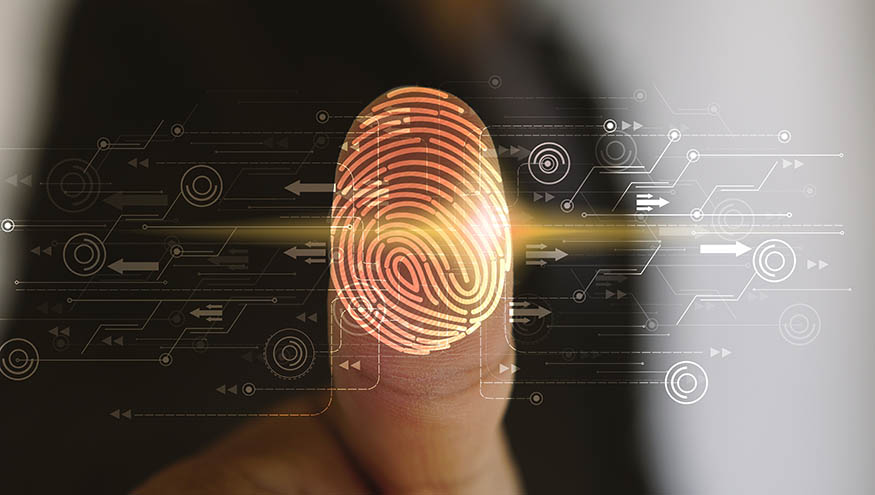As employers focus on employee safety, they often turn to background checks to ensure their employees and the public are safe. For some positions, this includes a requirement to undergo fingerprinting as part of the screening process. Fingerprint background checks can reveal a candidate’s criminal history, which may impact the hiring decision. Here are some ways these screenings help create a safe work environment.
Preventing Negligent Hiring
Negligent hiring claims arise when a lousy hire causes harm to a third party. The person who was hurt may be a coworker, customer, or anyone else the employee contacts through the job. A negligent hiring lawsuit places the burden of liability on the employer, so it is essential to run detailed background checks before hiring a new hire. Fingerprint background checks allow applicants to be vetted faster and more accurately. This check compares an individual’s fingerprints against federal and state terrorism and criminal databases. No two individuals have identical fingerprints, so this method helps to eliminate false positives. It is beneficial for jobs where a person has direct contact with people, such as childcare workers or home health care aides, real estate agents, delivery drivers who deliver to homes, and maintenance workers at apartments and condominiums.
While fingerprinting is the preferred method for completing national background checks, some challenges can arise when using this technology. For example, many states do not send their final dispositions to the federal Identifiable Information System (IAFIS), making it difficult to understand an applicant’s criminal history. Choosing a fingerprint background check provider offers enhanced accuracy and reliability in vetting individuals, as fingerprints provide a unique and irrefutable identifier. Additionally, such providers often streamline the screening process, saving time and resources for individuals and businesses while ensuring a comprehensive assessment of an individual’s background.
Preventing Unsafe Working Conditions
Many industries require fingerprint background checks, including fields that work with children or older people. These checks can help employers hire people who can conduct their jobs with the utmost integrity and protect vulnerable people who trust them with their lives and finances. Lawmakers often refer to fingerprint data as the “gold standard” of background screenings. It can reduce false positives because no two people have the same fingerprints. Despite this, several significant things about fingerprint background checks may need to be clarified about their usefulness. For this reason, it’s essential to understand what a fingerprint background check does and doesn’t look for before rushing to sign up for one. A fingerprint background check looks for a person’s fingerprints and then matches them to records in a database to find any matching criminal convictions. This check can also include civil records, such as driving record violations or disciplinary action for academic misconduct. A special scanner usually captures fingerprints or can be taken by hand. Both methods typically take around a week or month to complete, and the results are usually delivered by mail or email. Some companies offer an electronic fingerprinting option that’s faster and easier to use.
Preventing Workplace Injuries
Fingerprint background checks are often required for specific positions involving contact with children, older people, or people with disabilities. These positions include truck drivers, funeral directors, and healthcare workers. Lawmakers often cite fingerprint background checks as the “gold standard” of criminal background checks because they don’t appear in searches based on a person’s name and because no two people have the same fingerprints (even identical twins). However, it’s important to remember that all background check tactics have inherent and unavoidable weaknesses, including fingerprint searches. For example, not all arrest records list the outcome of an arrest, and not all cases that appear on a person’s fingerprint record will lead to a conviction. In addition, because racial minorities are disproportionately more likely to be arrested, relying on fingerprint searches that return incomplete or inaccurate information may have a disparate impact and result in legal risk for an employer. Fingerprint background checks involve a candidate visiting a local police department or similar location to have their prints electronically scanned. Several methods can scan an applicant’s fingerprints, but the most common is using a device similar to an ATM. Applicants must enter their date of birth, social security number, and other personal information to complete the process. This information will be submitted with the fingerprints to the appropriate State agency, a Screening Identification Bureau (SIB).
Preventing Fraud
For industries that deal with money, such as banking or healthcare, fingerprint background checks can help prevent fraud by verifying the identity of job candidates and ensuring that they have not been involved in prior criminal activities. Additionally, fingerprinting can protect sensitive information. Unlike other forms of identification, such as names and dates of birth, fingerprints cannot be faked. Fingerprint-based checks are handy for identifying and investigating crimes that involve identity theft. In addition, they can provide law enforcement with more accurate and timely information than other methods of comparing a person’s physical characteristics to records in vast databases like the FBI’s Integrated Automated Fingerprint Identification System (IAFIS). Many industries require all employees, or at least those with a high level of contact with the public, to undergo fingerprint-based background checks. For example, Texas requires fingerprint-based background checks for engineers, doctors, architects, lawyers, and stockbrokers before they can be licensed to work in their fields. However, fingerprinting can pose some challenges for employers, especially when hiring based on this data. When the system returns incomplete or inaccurate results, it can have a disparate impact on people of color and cause unintentional discrimination. Also, relying on fingerprints to make hiring decisions without conducting an appropriate and thorough background check can put employers at risk of violating the Fair Credit Reporting Act.
